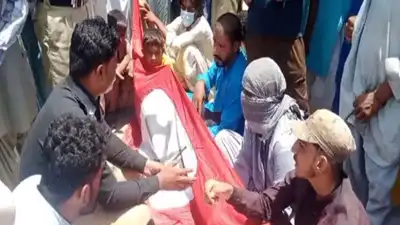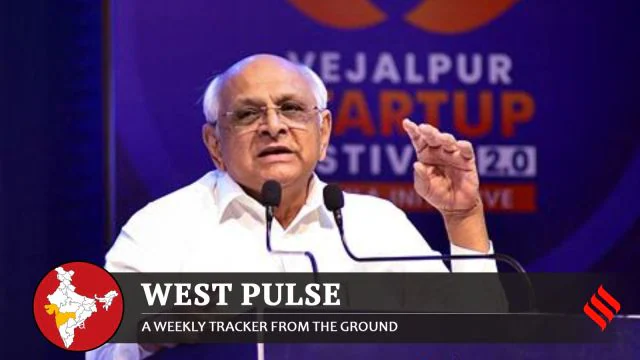In recent months, the Sindh province in Pakistan has been a center of protests and civil unrest, with civil society groups and nationalist organizations demanding autonomy and raising ongoing human rights abuses. The protests have been rising to a crescendo and commanding extensive attention throughout Pakistan and abroad, as most Sindhi citizens are voicing their increasing frustration with federal policies and feeling marginalized.
Rising Nationalist Fervor in Sindh
Behind the protests lies the increasing aspiration for an independent state of Sindh, commonly known as “Sindhu Desh.” The Jeay Sindh Freedom Movement (JSFM), a major nationalist organization in the province, has been active in leading the protests throughout Sindh. They are motivated by issues surrounding enforced disappearance, alienation of the natural resources of the province, and the dilution of Sindhi cultural identity. Activists believe that Sindh is being ignored and that the policies of the central government have resulted in socio-economic inequalities.
The demonstrators accuse the federal government of having eroded Sindh’s rights with scant attention to the aspirations and needs of the native people. This increased unrest has been seen through various protests within the province, with attendants demanding independence and justice.
The Controversial Canal Projects
Among the most pressing causes of unrest is the federal government’s proposal to build new canals on the Indus River. These projects, which are part of a plan to control water resources in the nation, have been opposed by Sindhi activists firmly. Their critics say that the construction of the canal would break water distribution agreements and could even cause more water shortages in the province. In addition, they argue that these projects may displace the local population and destroy the region’s fragile ecological harmony.
This has been met with large-scale protests and sit-ins, especially in cities such as Sukkur and Hyderabad. The demonstrations have been supplemented by general strikes, whereby businesses closed and roads were blocked to call attention to Sindhi grievances. The protests have been increasing in size, interrupting normal life and drawing criticism for the environmental and social costs of the canal projects.
Human Rights Violations and Government Repression
Human rights groups have raised alarm over the handling of activists and protesters in Sindh. There have been multiple reports of peaceful protests having been dealt with by the state in heavy-handed fashion, involving violent dispersals, arrest, and the lodging of bogus charges against activists. The Shah Nawaz Kumbhar case, that of a prominent political activist charged with blasphemy, has drawn widespread publicity to the human rights abuses taking place in the area. The death of Kumbhar in a police shootout after being assured of a fair trial has kept allegations of extrajudicial killings and state-sponsored brutality against dissidents in the forefront of attention.
This event is indicative of wider issues regarding the silencing of free speech and non-violent protest in Sindh, with many activists believing they are being targeted for criticizing government policies. The government’s inability to resolve these human rights violations further heightened tensions and strengthened the commitment of those advocating for Sindhi independence.
Economic Impact and Civil Disobedience
The demonstrations in Sindh have had a major economic consequence, especially in trade and transportation. With the regular occurrence of road blockades, sit-ins, and strikes, the transportation of goods has been greatly hampered. The blockade has not only disrupted local trade but regional trade as well, as Sindh serves as an important economic center of Pakistan, especially with its industrial estates and ports.
The continuous civil disobedience movements indicate the level of frustration in the Sindhi populace. Since protests have been disrupting the day-to-day functioning of society, it is becoming increasingly challenging for many people to sustain their livelihoods. The economic impact of the protests has caused some members of the commercial community to speak in favor of the autonomy movement, realizing that political and social stability in Sindh over the long term is essential for economic development.
International Solidarity and Attention
The Sindh protests have also attracted attention from the international community, as diaspora Sindhi groups and human rights organizations appealed for more action to stop the enforced disappearances, extrajudicial killings, and cultural oppression. These voices at the international level have been important in magnifying the Sindhi demands and compelling the government of Pakistan to act.
In cities around the globe, including in the United States, Europe, and the Middle East, Sindhi diaspora groups have mobilized solidarity demonstrations to bring attention to the plight of their homeland. These global protests have assisted in bringing attention to the human rights atrocities occurring in Sindh and placing pressure on the government of Pakistan to enter into serious dialogue with Sindhi leaders.
The Way Forward
The continued protests in Sindh reflect fundamental issues of governance, human rights, and the power balance between the federal regime and provincial powers. Although the Pakistani government is yet to implement fundamental shifts in its policies, the continued protests indicate that Sindhi activists and their allies will continue to demand autonomy and justice.
The future of Sindh’s self-rule movement is uncertain, but what is certain is that the Sindhi people are not willing to let their voice be heard and for them to be accorded more recognition for their rights. It is hoped that the government will ultimately sit with the Sindhi leaders and respond to the calls for more autonomy, and fix the human rights abuses that continue to plague the province.
In summary, the increasing unrest in Sindh is a reminder of the complicated politics in Pakistan and the requirement for more inclusive governance. In order not to have further instability, the Pakistani state needs to develop a means to honor the autonomy and cultural identity of Sindh while fulfilling the legitimate needs of its people. Through dialogue and actual political reform alone can the region achieve lasting peace and justice.






